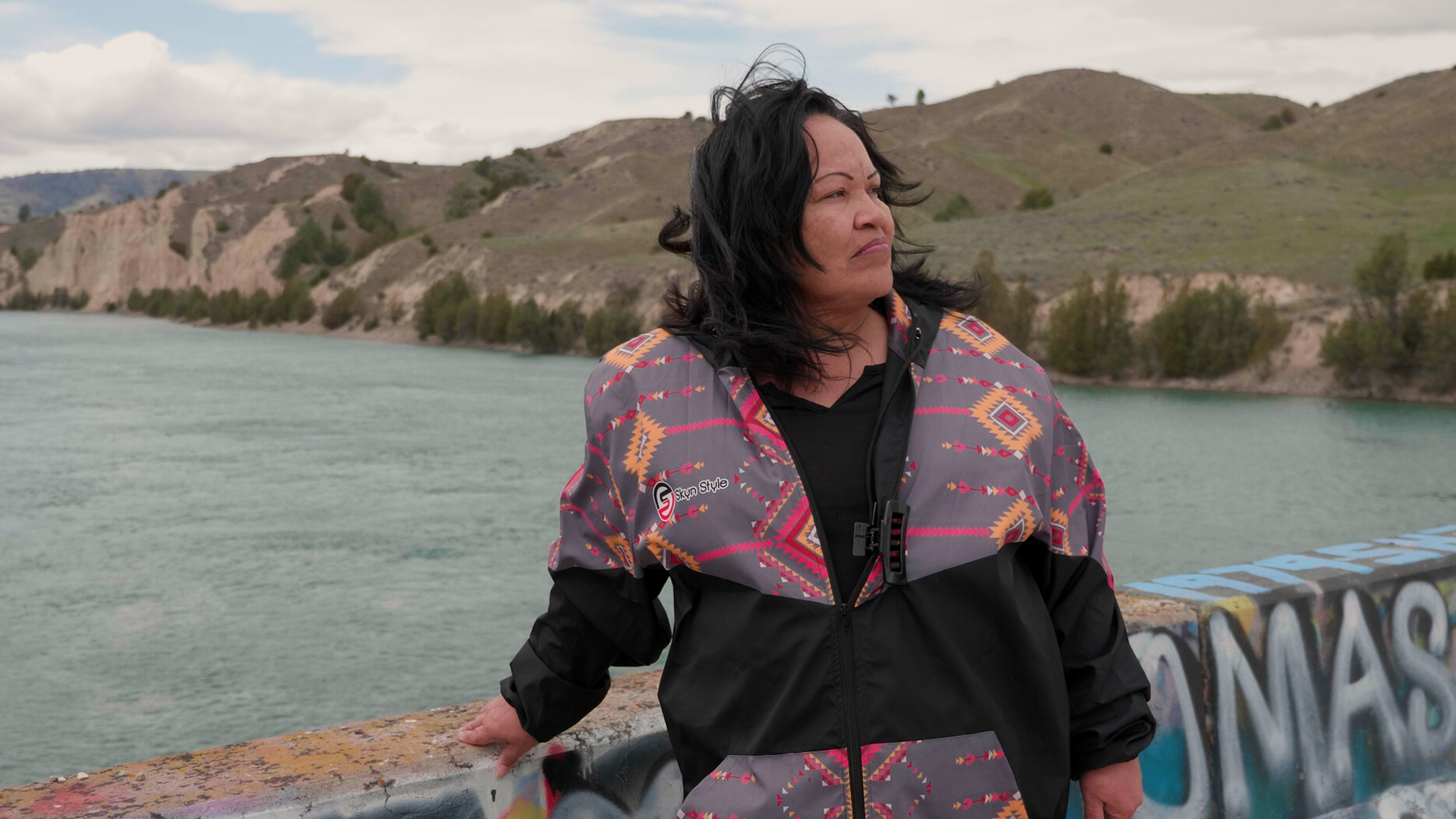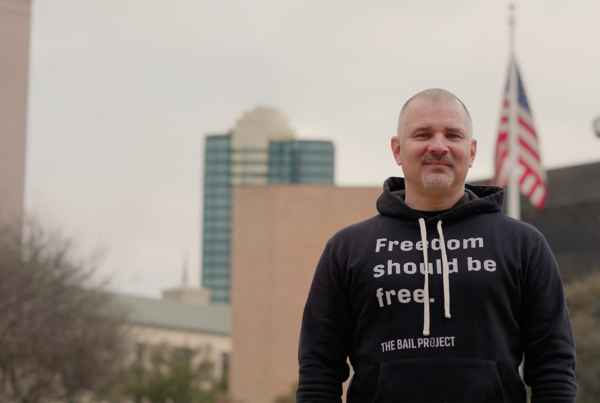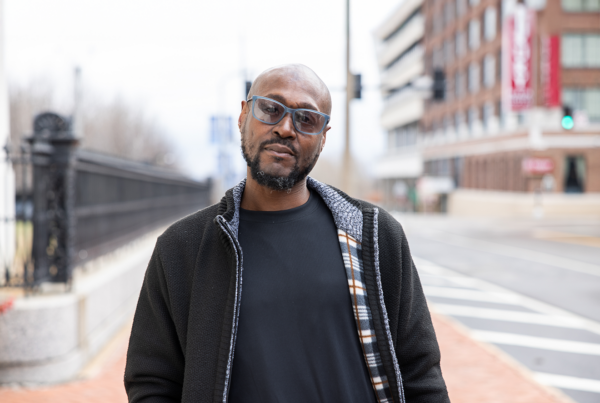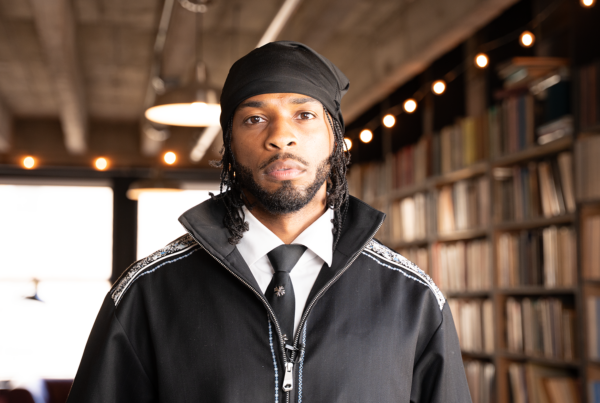Video Transcript
RILEY: Hi, I’m Riley. I’m a Bail Disruptor with The Bail Project, and we are at the Confederated Salish & Kootenai Tribal Complex.
The Tribal Defenders here for the Tribes, they are practicing a holistic defense model, but there’s also some things that they can’t do, like they can’t post bail for people. They don’t have the financial resource to be able to actually physically post bail for people, and that’s where The Bail Project comes in.
This is the Law and Order building. This is where I posted bail for LaVonda.
LAVONDA: My name is LaVonda Marie Curley. I’m an enrolled member of the Confederated Salish & Kootenai Tribes on the Flathead Reservation. I was a problem child. They kicked me off the Res when I was 14. Gave me a choice to go to a boarding school in Oklahoma or to go live with my aunt in California, and so I chose my aunt, and they said till I graduated high school or turned 18, I was not allowed back here. I had some really good teachers though that believed in me. They said I could be a voice for my people. I got three full scholarships for political science, which is crazy.
I came back for my brothers and my sister. I felt bad being down in California, having this good life, living the dream. You know, it was always in the back of my mind about my brothers. They were going without you know and my sister, and I just I didn’t feel like I deserved it. I should be there with them.
I started out as an alcoholic. I was introduced to crank when I was 26. You know, I didn’t care. Didn’t have no respect for the law, for sure. But something did change, you know, after losing my mom to cirrhosis.
Well, my daughter and my son my nieces and my nephews deserve to see a better version of me because literally I’m like the elder in my family now. Both my aunts, my mom, and my uncle, they’re all gone. They all passed away, and so I was like I want to go to treatment. To even think that, I wanted this. This sober life, is like I don’t know. It’s crazy. I just never thought this would be me, you know, and I never thought I’d go to jail sober.
Right when Tribal pulled up, and Ben comes over, and I know him. He’s like, “Oh, I gotta take you to jail.” I was like “What? For driving on suspended?” He’s like “Yes.”
RILEY: Her defender reached out to me before she had even been arrested and said you know this is something that we’re seeing that we know this warrant is out there. They’re probably going to execute this warrant. Would you consider screening her for The Bail Project? When she was in jail, I asked you know, “What’s her bail?” and they said, “250,” which is the standard bail amount for driving while suspended or revoked, and I said, “Well, what about this other warrant that I hear she’s got,” and they said, “Well we don’t have that,” so her bail was just 250 and that’s what I posted for.
LAVONDA: So I got bonded out. I had to turn myself back in because they found another warrant that I had with the tribe which was from 2015, I want to say. Really old.
RILEY: So not only had she been in jail, you know, just a few days before on the first warrant, she had to come back and turn herself in, so it was a pretty stressful time, but thankfully we were able to communicate and get through it together and she’s so brave and so determined so we got those two situations knocked out.
LAVONDA: Don’t really have faith in people, trust people, but Riley I never even felt, I always felt like it was genuine, you know. Riley was awesome.
RILEY: It’s just important to hear people where they’re at, you know, and it’s so much more than just listing out the charges and it’s about hearing where they’re at in their life, where they’re at emotionally, where they’re at mentally and hearing where she was at in her journey how, you know, she’s at this really high point of her involvement with the criminal justice system and how important it is to not break people’s momentum when they’re at a high point.
One thing I’ve learned from doing this job is that, you know, there is so much more to the story than what you get charged with.
Justice Begins With the Whole Story
In Montana and across the country, people are routinely defined by what they’ve been accused of – not who they are, or what they’ve lived through. Every year, people in Montana are sent to local jails over 43,000 times, often for low-level offenses. Many remain there pretrial simply because they can’t afford to pay bail.
On the Flathead Reservation, Bail Disruptor Riley partners with the Confederated Salish & Kootenai Tribes to provide something different: support grounded in empathy. She works alongside the Tribal Defenders Office, a public defense team that practices holistic defense – a model that treats each person as a whole human, not just a case file. That means understanding their history, needs, and goals – and showing up for them beyond the courtroom.
It’s how Riley met LaVonda.
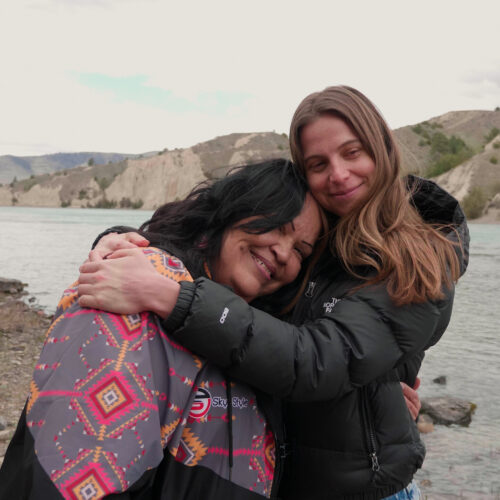
”There is so much more to the story than what you get charged with.
Riley, Bail Disrupter
LaVonda Deserved Support, Not a Setback
LaVonda, a mother and enrolled member of the CSKT, was navigating trauma, family responsibilities, and her own healing journey when she was arrested. Unable to afford bail, she faced losing her progress – and her stability – all over again.
Riley listened. She believed in LaVonda’s story. And she helped secure her release so LaVonda could keep moving forward. Watch their story. This is what pretrial justice looks like when it’s rooted in care.
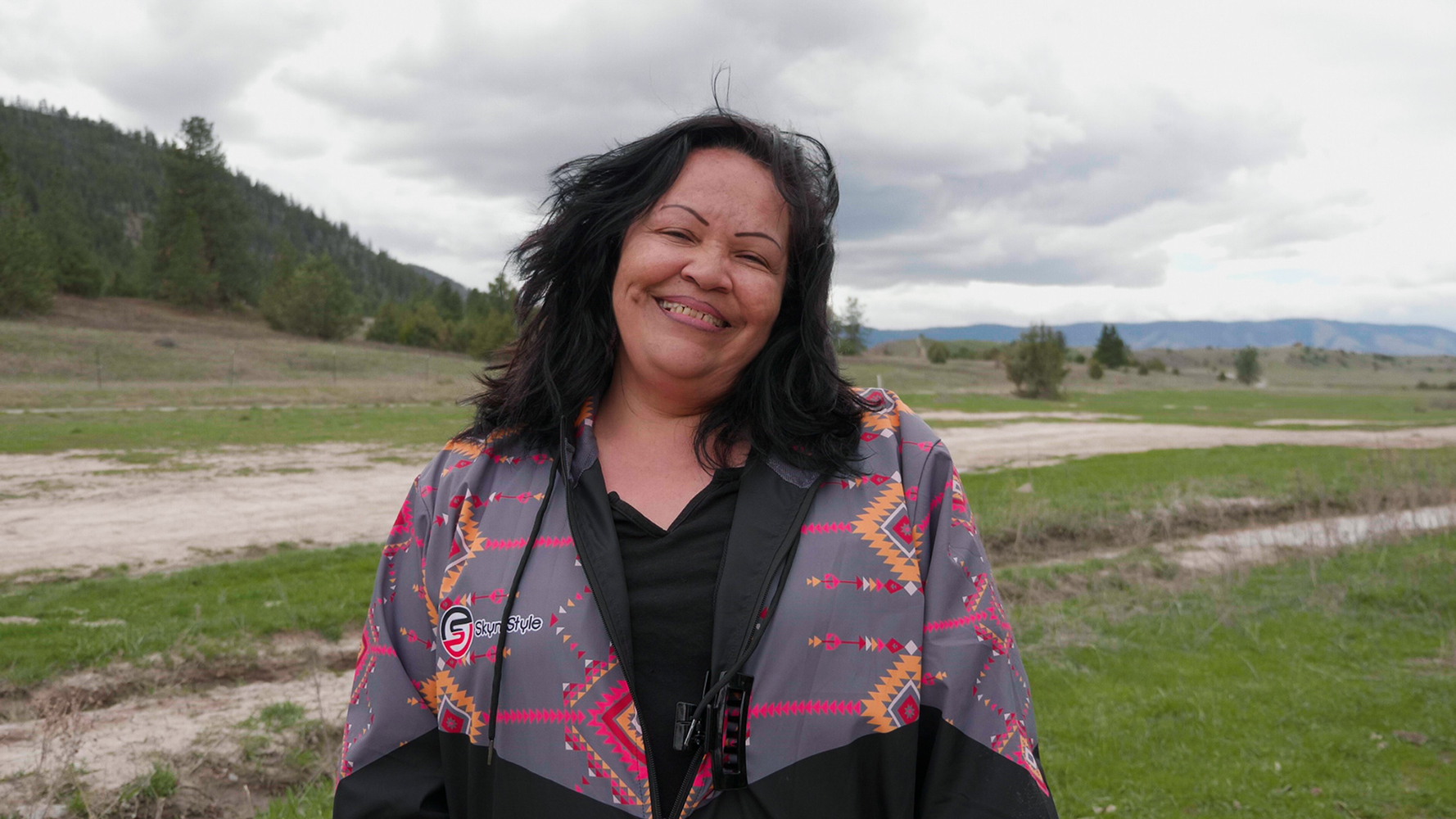
A Broken System, Disproportionate Harm
In Montana, Native Americans make up just 6.6% of the population, yet they represent about 25% of people under state correctional supervision. The Bail Project’s work with the Tribal Defenders is part of a broader commitment to dismantle these inequities – one person, one story, one act of solidarity at a time.
Compassion in Action: A New Model of Justice
Real justice starts with listening. Our bail disruptors, like Riley, use our Community Release with Support model to continue assisting people once they’ve been released. It’s about more than providing bail assistance, but also connecting people with the resources that will help improve their lives.
Thank you for reading. The Bail Project is a 501(c)(3) nonprofit organization that is only able to provide direct services and sustain systems change work through donations from people like you. If you found value in this article, please consider supporting our work today.







